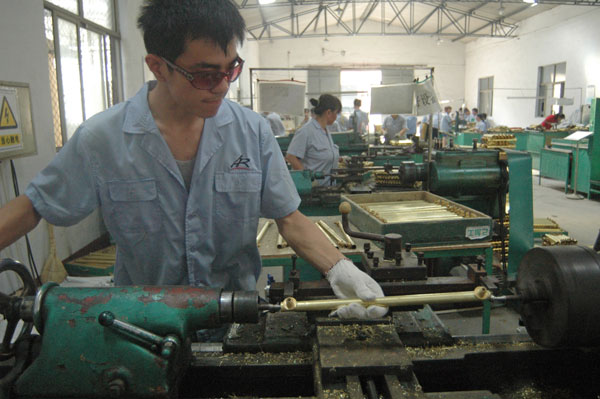Tokyo 'should regain trust' by following path set by Germany
Updated: 2015-08-12 07:43
By Zhang Yunbi(China Daily)
|
|||||||||||
If Japan wants to reconcile with China over wartime history, it should look to the example set by Germany, a senior Chinese scholar of Japan studies told China Daily.
Li Wei, director of the Institute of Japan Studies at the Chinese Academy of Social Sciences, estimated that "it will be a long process" before the ultimate goal is reached, and people should understand the importance of this issue.
A report by an advisory panel of former senior officials and experts that was delivered to Japanese Prime Minister Shinzo Abe on Aug 6 noted that Japan has yet to realize "complete reconciliation with China and South Korea".
"Recently, the Japanese government seems to have realized that the issue of reconciliation has become a major burden for its diplomacy, and it is seeking wordings and approaches that will resolve the issue once and for all," Li observed.
She recalled being asked by Japanese diplomats and media about "how many official apologies are enough for China's forgiveness".
That raises the question of a hypothetical bottom line or lowest threshold, "which suggests that Japan is seeking a marginal effect with the lowest cost in diplomacy. It is seeking resolutions at the technical level, rather than a complete transformation at the spiritual level. In this regard, there is an obvious gap between Germany and Japan," she said.
Germany's efforts to face up to its Nazi past "have been relentless in the past decades", and Germany has therefore regained the respect of the victimized countries and become a backbone of the European Union and world affairs, Li said.
"Postwar German chancellors have consistently reflected and apologized on various occasions about the war, which ended 70 years ago. It is a process with no end and it shows the courage and wisdom of a political power," Li said.

Japan has not demonstrated such an ambition and self-awareness, Li said.
Foreign Minister Wang Yi said in June that the Japanese leader must choose between two options: continuing to stay in the shadow of history or "achieving a real reconciliation with all countries, especially those invaded and hurt by Japan".
Li also raised questions about Japan's ongoing legislative campaign to get radical security bills passed and change the country's defense policy.
She observed that Japan is making a shift in its security and defense policies along with the rise of right-wing voices, and "there is a growing tolerance over words and actions of right-wingers among the Japanese community".
"Japan is once again taking its military forces into the realm of world affairs without achieving transformation of its national belief in regard to the recognition of history," she said.
Dealing with that is "a realistic and important issue for the international community, especially East Asian countries such as China", Li said.
zhangyunbi@chinadaily.com.cn
(China Daily 08/12/2015 page1)
Today's Top News
China's yuan weakens most in two decades after central bank reform
Greece and lenders agree on
bailout terms
Attacks kill 9 at US consulate
in Turkey
To boost tourism, consumption, govt suggests longer weekend
Greece, lenders in stretch run to to seal new bailout
State Council approves plan to overhaul SOEs, claims report
Amazing China 2015 photo contest unveiled in Beijing
China's HK CTS Metropark buys Kew Green, manager of Brighton's Grand Hotel
Hot Topics
Lunar probe , China growth forecasts, Emission rules get tougher, China seen through 'colored lens', International board,
Editor's Picks

|

|

|

|

|

|






